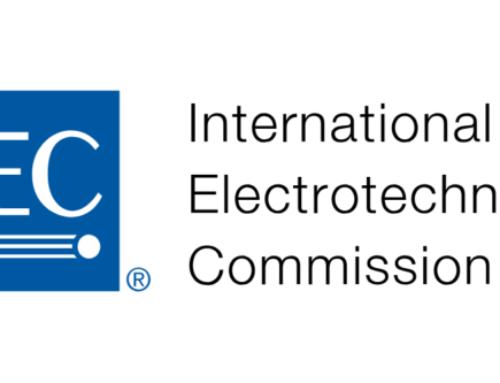18/08/2020
 On 4 August 2020, the State Council published the Several Policies for Facilitating the High-quality Development of the Integrated Circuit Industry and the Software Industry in the New Era. The document calls, among others, for more sustained efforts to formulate standards for integrated circuits and software, so to improve their standardisation systems.
On 4 August 2020, the State Council published the Several Policies for Facilitating the High-quality Development of the Integrated Circuit Industry and the Software Industry in the New Era. The document calls, among others, for more sustained efforts to formulate standards for integrated circuits and software, so to improve their standardisation systems.
The integrated circuit industry and the software industry are at the core of the information industry; they play a critical role in advancing and leading the new round of technological and industrial revolution. In order to promote the rapid development of the integrated circuit and software industries, in 2001 and 2011 the State Council released, respectively, the Several Policies for Encouraging the Development of the Software Industry and the Integrated Circuit Industry, and the Several Policies for Further Encouraging the Development of the Software Industry and the Integrated Circuit Industry. Despite these efforts, however, imported chips still occupy a significant proportion of China’s total imported goods: more than 400 billion chips worth over 300 billion USD are imported to China each year. The overdependence on other countries for such a critical product may present serious risks to the development of China’s information industry, and therefore it has become a key concern for the Chinese administration – especially after the United States’ recent restrictions on chip supply for Huawei.
In this context, the newly-released Several Policies for Facilitating the High-quality Development of the Integrated Circuit Industry and the Software Industry in the New Era contains unprecedented fiscal and tax support for the integrated circuit industrial chain, for instance:
- Corporate Income Tax (CIT) exemption for the first ten years, for all state-encouraged integrated circuit manufacturers and projects whose operating periods exceed 15 years, and which produce integrated circuits with a line width of no more than 28 nanometers;
- CIT exemption for the first two years (starting from the first profitable year), and 50% CIT reduction from the third to fifth year, to all software enterprises involved in integrated circuit design, devices, material, packaging and testing;
- Extension of currently existing preferential VAT policies for integrated circuit enterprises and software enterprises;
- Exemption of import duties on raw materials used for production, and on self-use equipment, for all state-encouraged key integrated circuit enterprises and software enterprises.
In addition, the document also outlines supportive policies for a wide range of activities in the field, including investment and financing, R&D, import and export, personnel training, intellectual property, market application and international cooperation.
Standardisation, as a critical activity at the foundation of high quality industrial development, is also a key highlight of the document. Major policies in this regard include:
- Encourage software enterprises to implement national standards for software quality, information security and software development; promote the establishment of integrated circuit standardisation organisations, improve relevant standard systems, and strengthen capabilities for standard verification and R&D.
- Give full play to industry associations and standardisation organisations, facilitate the formulation of standards for integrated circuits and software, and promote quality evaluation for integrated circuits and specifications for the measurement of software development costs.
- Strengthen the communication between Chinese and international industry associations; support Chinese enterprises to cooperate with international partners both at home and abroad, and promote their active participation in international standard-development bodies and in the international market.
These policies indicate that the standardisation of integrated circuits and software is likely to be raised to the same strategic status of other key emerging standardisation fields – such as 5G, AI and cybersecurity – and to shift to centralised coordination and management. Furthermore, in order to quickly address and fill standardisation gaps emerged during the course of industrial development, significant attention will be given to the development of both government standards (formulated by standardisation organisations) and association standards (formulated by industry associations).
Finally, it is noteworthy that the document explicitly points out that “the policies apply to all eligible integrated circuit enterprises (including those involved in design, production, packaging, testing, device and material) and software enterprises established in China, regardless of their ownership nature”, and that “the policies shall come into force immediately”. This reflects the urgency that the Chinese government, under enormous pressure, attaches to the development of advanced integrated circuit technologies. The policy document, therefore, represents a positive development for all investors.




